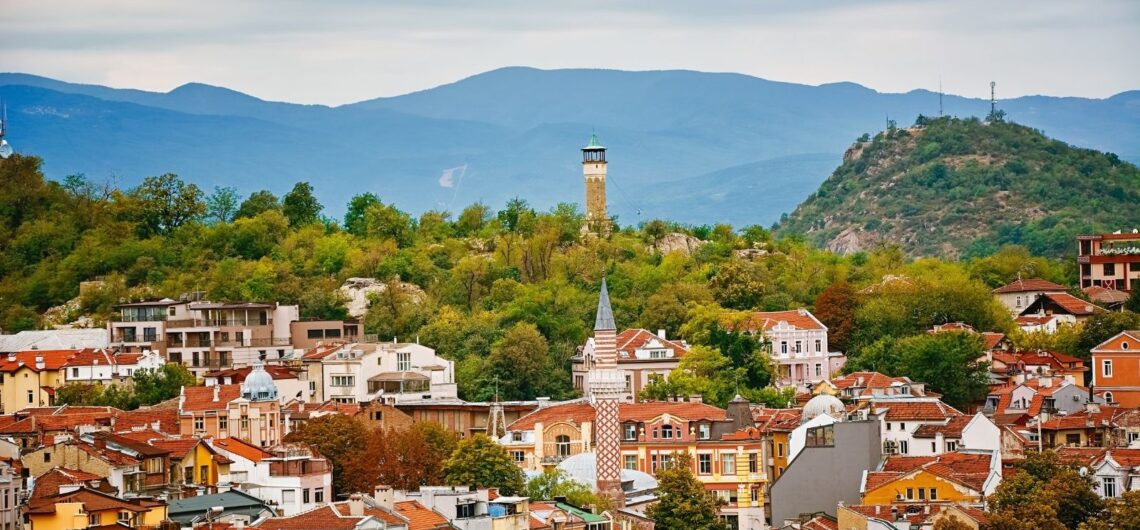In honour of the first of our new mountain hiking holidays in Bulgaria taking place this month, we’ve rounded up some interesting facts about the country that you probably didn’t know.
For example, did you know Bulgaria’s actually a huge exporter of wine? Speaking of which, Valentine’s Day in Bulgaria is known as something else and you might spot vintners sweet talking their vines instead of their wives.
Read on for more interesting facts about Bulgaria.
1. Bulgaria is old!
Established in 681 AD and never renamed since, Bulgaria is one of the oldest countries in Europe. Unsurprisingly, it’s also home to Europe’s oldest inhabited city. Plovdiv, in southern Bulgaria was built around 8,000 years ago. The old town and Roman amphitheatre there are among its biggest attractions.
2. It has some really old artefacts
Being one of Europe’s oldest countries, it comes as no surprise that Bulgaria has some pretty old artefacts too. And not many people know that Bulgaria is ranked third after Greece and Italy for archeological monuments. The world’s oldest golden treasure was found there which date back 6,000 years.

3. Bulgarian folk music is out of this world
In 1977, the Bulgarian folk song “Izlel e Delyu Haydutin” was sent into space on board the US Space Probe Voyager I and there’s probably some aliens flying around singing it.
4. Bulgaria is home to the highest peak in the Balkans
The peak of Mount Musala (Ottoman for “Close to God”) is the highest peak in the Balkans, soaring to 2,925.42 metres (9,958 feet). You’ll have a chance to hike this mighty mountain on our 7-day mountian hiking holiday in Bulgaria.
Related:
- 12 fun facts about Albania
- 6 things you probably didn’t know about Serbia
- 6 things you probably didn’t know about Kosovo
5. Bulgaria has more than 130 active monasteries
The mountains of Bulgaria are scattered with monasteries of various religions. The Rila Mountains, which is where our hiking holiday takes place, is home to the UNESCO World Heritage Rila Monastery and you will have the chance to visit during the week.

6. Yes means no, no means yes
Like Albanians, Bulgarians shake their head for ‘yes’ and nod their head for ‘no.’
7. Valentine’s day in Bulgaria celebrates a love for wine
While most people give flowers and chocolates to their loved ones on 14th February, in Bulgaria, people romance their grape vines. Tradition has it that the wife of the household wakes early and prepares grape-leaf bread, rice-stuffed chicken and a glass of wine and puts it in a new wool bag for her husband to take to the vineyard. Once there, the husband whispers sweet words to the vines in hope that it brings good fruit. This day is called Trifon Zarezan after Saint Tryphon, the patron saint of gardeners and wine growers.
8. The bagpipe isn’t just for Scots
The bagpipe or “gaida” is Bulgaria’s national instrument.

9. In Bulgaria, you pay with lions
It’s true, the lev, which is the Bulgarian currency, translates from an old Bulgarian word meaning “lion.” It comes as no surprise then that the national animal of Bulgaria is also the lion.
10. Bulgaria produces up to 85% of the world’s rose oil
Iran may be the biggest exporter of rose water, but in Bulgaria, rose oil is big business. Some of the most expensive perfumes in the world contain the produce from Bulgaria’s Rose Valley (Kazanlak). Each year, Kazanlak holds the Kazanlak Rose Festival where people dress in traditional costumes and take part in street parades.

11. Bulgaria is the place to go for a spa break
Bulgaria has the second largest number of mineral springs after Iceland. There are plenty of spas where you can go and pamper yourself in the mineral-rich waters—and probably for less than you’d pay for a spa day in the UK.
12. Spring is celebrated with the gifting of bracelets
Baba Marta (“Grandma Spring”) is celebrated on 1st March each year with the exchanging of red and white bracelets. Red symbolises life and white symbolises purity. They’re worn until the end of the month or until a stork is seen, which symbolises spring is here.

13. There are a lot of trees
Like much of the Balkans, Bulgaria is teeming with wildlife. One third of Bulgaria’s territory is covered by mostly natural forests, which are home to some 43 globally endangered animal and plant species.
14. It’s a huge wine exporter
Bulgaria has a longstanding tradition of cultivating wine and while it’s not as popular as French brands, it’s actually a huge producer of the grape stuff and has four times the wine growing area of France. Bulgaria tends to grow Californian Cabernet Sauvignon, the fastest-growing newcomer in the market.
15. We can thank Bulgaria for Facebook
Well, kind of… the creator of Facebook, Mark Zuckerberg, has Bulgarian origin and he is named after his Bulgarian grandfather, Marko. His grandfather emigrated to the USA in 1940 and 44 years later, Zuckerberg was born.
 Bulgaria 7-day mountain hiking holiday
Bulgaria 7-day mountain hiking holiday
Challenge your calves and be rewarded by some of the most breathtaking scenery in the Balkans on this week-long sojourn around the Pirin and Rila mountains, home to pristine lakes, the UNESCO World Heritage Rila Monastery, and the highest peak in the Balkans—Musala.


 Bulgaria 7-day mountain hiking holiday
Bulgaria 7-day mountain hiking holiday
Comments